Drupal 11: Eleven Changes & Updates In Drupal 11
Drupal is a free, open-source platform for creating and managing websites, digital directories, and additional online content. It has a vast, active community of users and developers. Millions of individuals and organizations worldwide use it to create and enhance the performance of their online platforms. You likely engage with Drupal daily, unaware that numerous leading companies and government organizations use it.
Drupal is one of the most trusted open-source content management systems in terms of website security. And everyone's been eagerly waiting for the release of the new version of Drupal - Drupal 11. If you want to know what the new Drupal 11 has to offer, then you've come to the right place.
But before we move forward if you want to migrate from your existing content management system to Drupal, check out our migration services.
In this blog, we're going to talk about the Drupal 11 release date, what are its features, what are the requirements, the roadmap for Drupal 11, and much more.
So, let's get started!
Drupal 11 Release Date: From Announcement To Launch
In November 2023, three potential Drupal 11 launch dates were revealed:
-
June 2024
-
August 2024, and
-
December 2024
These Drupal 11 release dates were announced based on the dependency on the completion of Drupal 11 beta requirements. Main software updates on which Drupal 11 was dependent included Symfony 7, jQuery 4, and PHPUnit 10 or 11. But this was all about the potential dates.
The good news is that:
Drupal 11 was released on 2nd August 2024!!
The most recent update is 11.0.2, which was released on September 5, 2024. Drupal 11 is an improved version of Drupal 10, providing support for 8,000+ extensions. And when it comes to Drupal 10, it will receive support up until the debut of Drupal 12, which is expected in the mid-to-late part of 2026. Every significant release gets solid support for roughly 2 years. After 2 years comes routine maintenance and security assistance which is provided for approximately another 2 years.
Every significant update is backed for at least 4 years, until the launch of 2 additional major updates.
Also Check Out:
-
Drupal's Omnichannel Capabilities: Enhancing Customer Engagement and Experience
-
Exploring Drupal's Single Directory Components: A Game-Changer for Developers
Drupal 11 Features: Eleven Amazing New Updates
Now that Drupal 11 is out, let's explore some exciting new functionalities that it has to offer:
1. CKEditor Autoformat
CKEditor 5, which is a part of Drupal 11, has a default What You See, Is What You Get (WYSIWYG) editor. It is a built-in function that detects when you are entering a list or a header. Then it automatically adjusts the formatting as needed. CKEditor also enables the use of Markdown shortcuts throughout the editing process, eliminating the need to navigate through the menu to accomplish this.
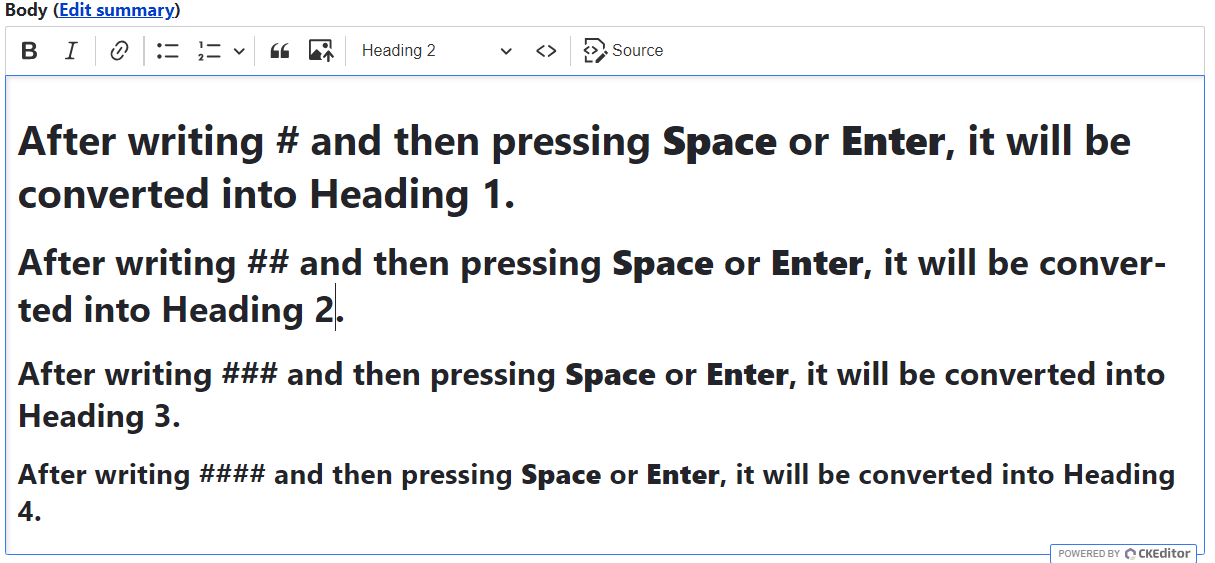
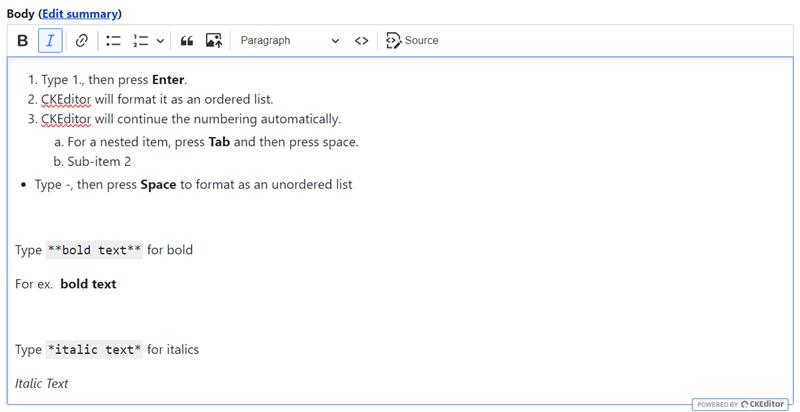
2. Revamped User Interface Field With Floating Bulk Options
Managing and organizing content has become simpler due to many enhancements to the user interface. For example, the new floating action bar allows individuals to initiate tasks on various chosen items with ease.

3. Performance Enhancements
Drupal 11 features are designed to boost performance, such as BigPipe for faster web page opening and lazy image loading for gradual image display. Don't overlook the impact that PHP 8.3 (required for Drupal 11) can have on the security, performance, and maintainability of your websites. It is also faster than PHP versions 8.1 and 8.2.
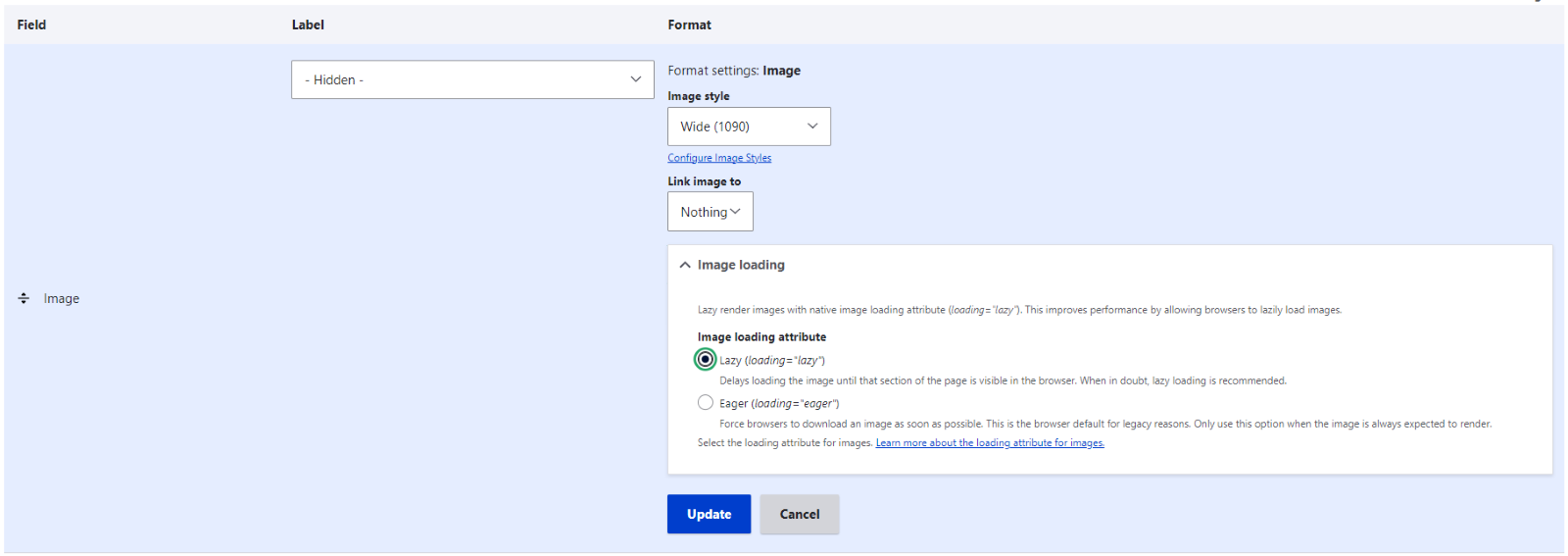
Lazy Image Loading For Gradual Image Display

Lazy Image Loading For Gradual Image Display

Verify PHP 8.3 For Improved Security And Performance
4. Project Announcements
Project announcements are useful, as they display all Drupal updates and happenings.
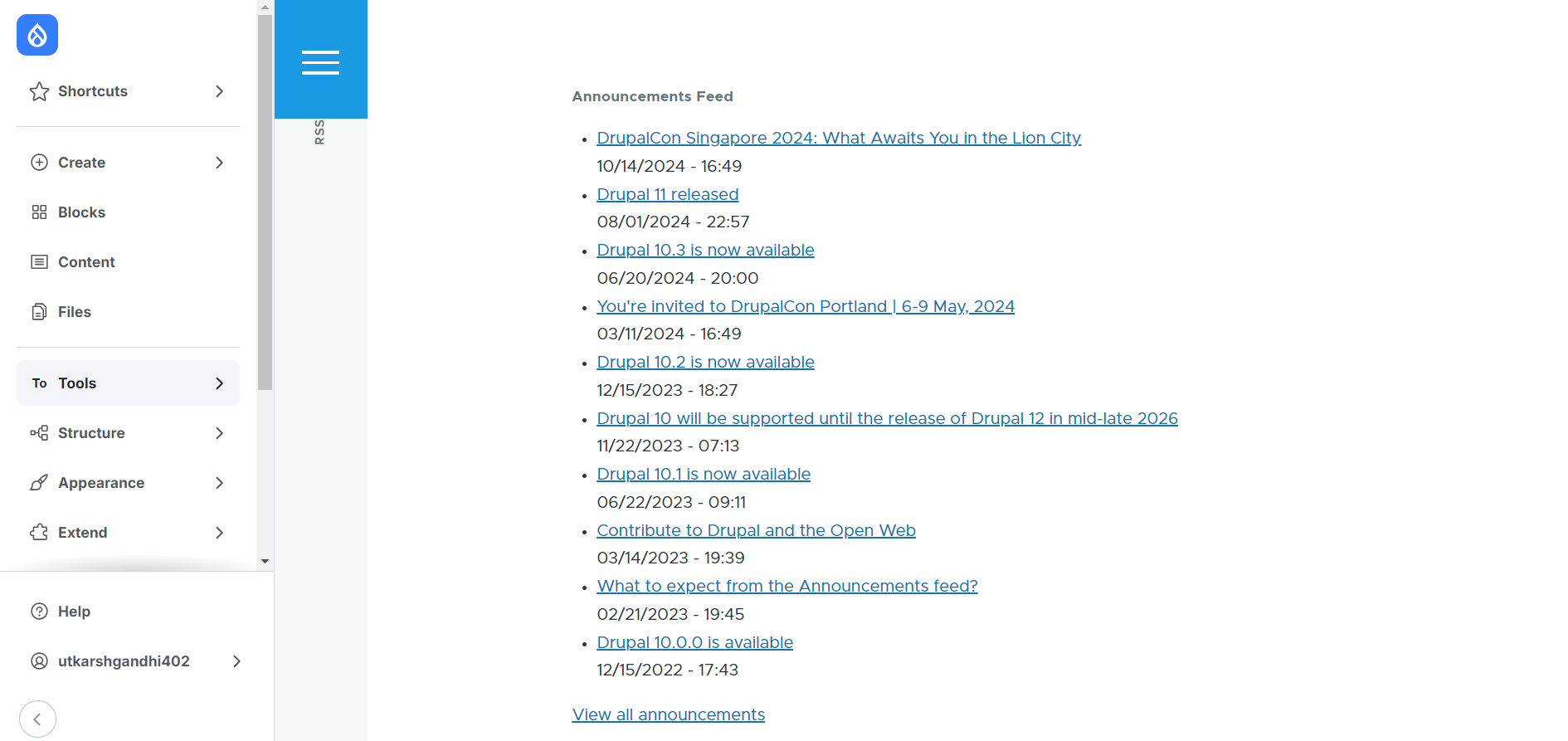
5. New Navigation Module
The new side navigation panel effortlessly lets you reach all the necessary Drupal 11 features in the CMS. Not just this, it also makes it simple to add new content.
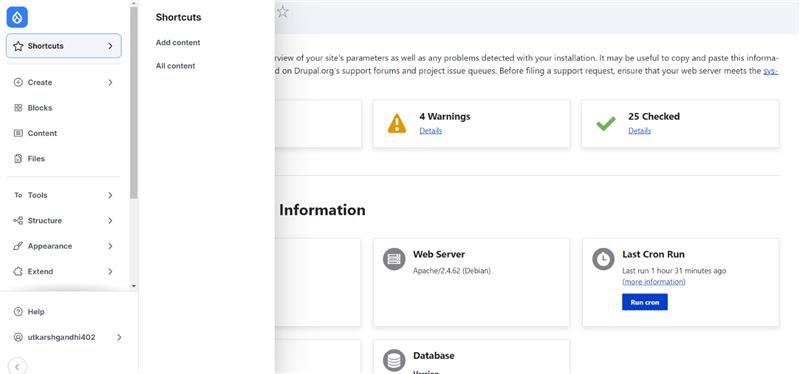
6. Stable Workspaces
This is a breakthrough for content editors. It enables you to add a whole new section on your website that only goes live when you manually set it up to go live. The Workspaces module enables the simultaneous setup and release of various content updates. It also provides a 'Preview' option for you to see how the content will look before publishing it.
This enables content creators to have a greater hold on how the content is published. This would be especially useful for covering political events like elections. Multiple before-result scenarios can be published on the website. Once the results are out, the one that fits the outcome can be retained while other scenarios can be deleted effortlessly.
7. New Access Policy
Access to the API website has unexpectedly turned into something exciting. It now goes past just permissions and user roles. Additional conditions can now be considered, such as if the user used two-factor authentication or if they hit a usage rate threshold.
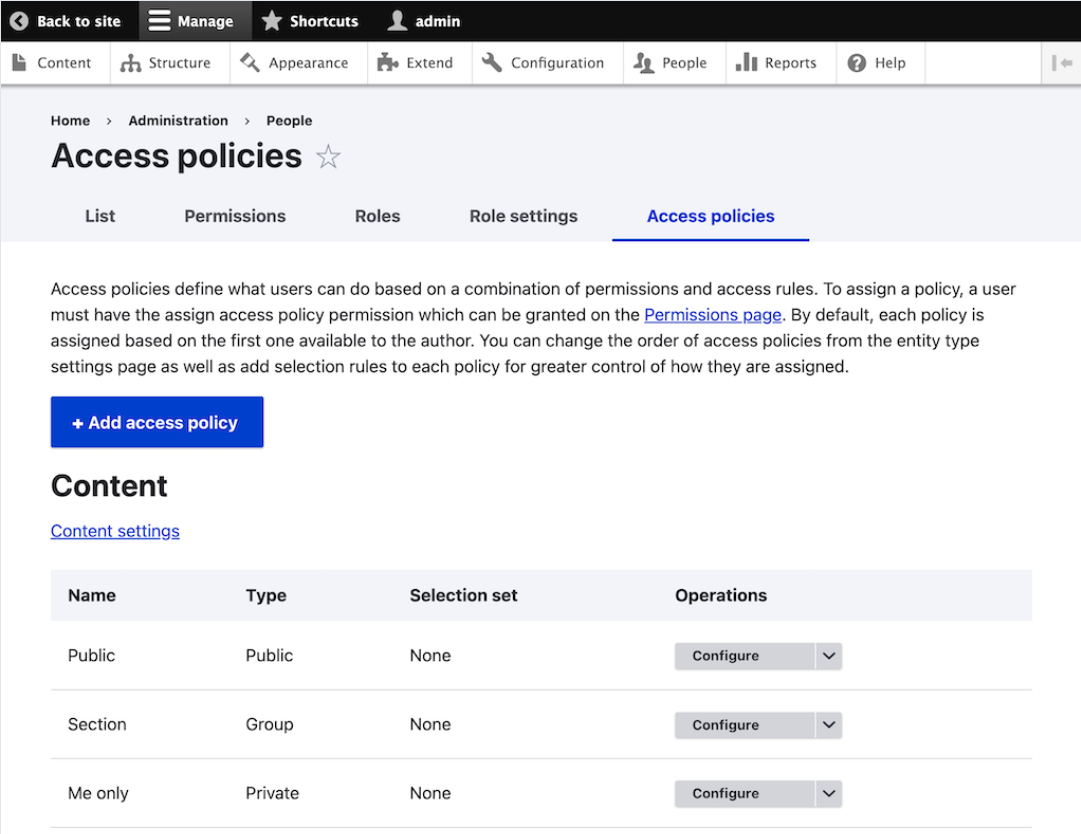
Image Courtesy: Acquia
8. Taxonomy Term Revisions
The taxonomy now offers a graphical interface that allows users to see, undo, and remove revisions.
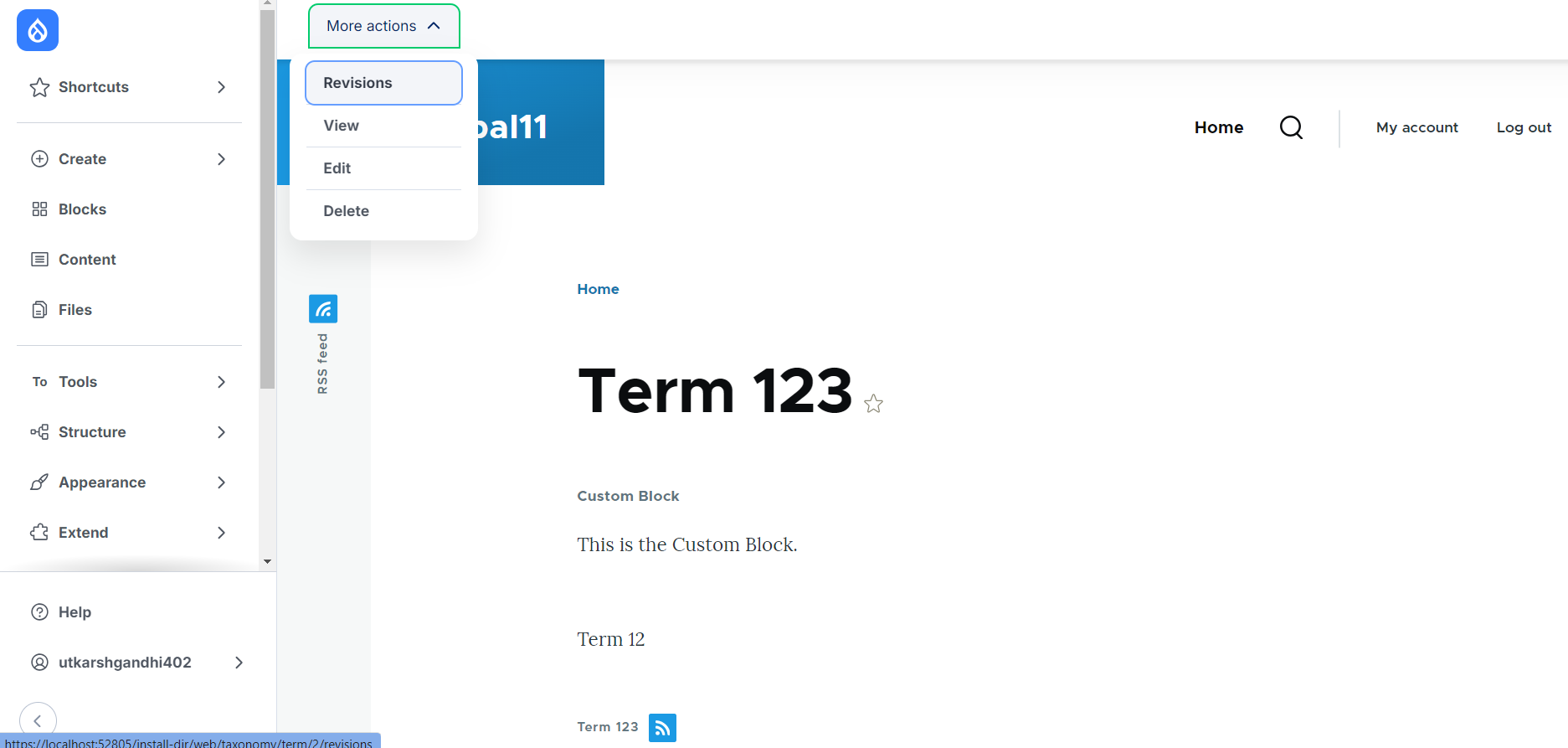
9. Single Directory Components
The implementation of Single Directory Components simplifies the process of locating components. It allows the reuse of components across the site in various locations and makes it simpler to develop them for the front end.
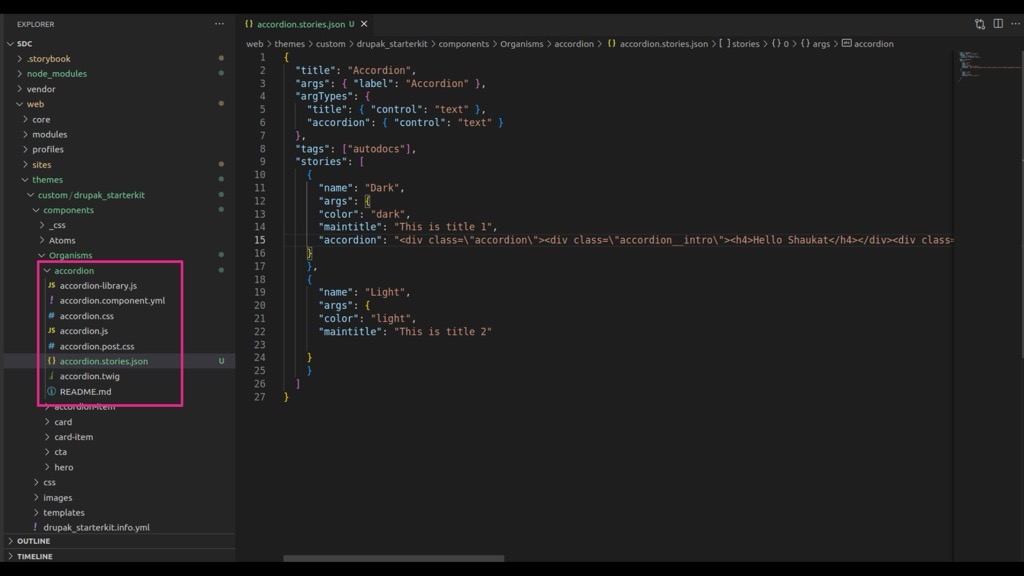
10. Decoupled Menus With Linkset
Specialized connections following the Linkset model make it easier to move around within different sections in scenarios where the components are independent of each other.
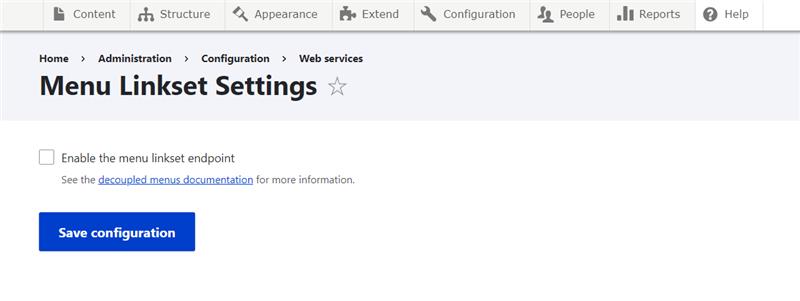
11. Easier Block Management
Block Management now offers greater adaptability. For instance, you can now create unique blocks directly under Structure within the admin interface.
With these Drupal 11 features, one can say that the latest tech used in Drupal 11 offers a base for creative new abilities. These will enhance the user experience for content creators and significantly broaden the functionalities of Drupal.
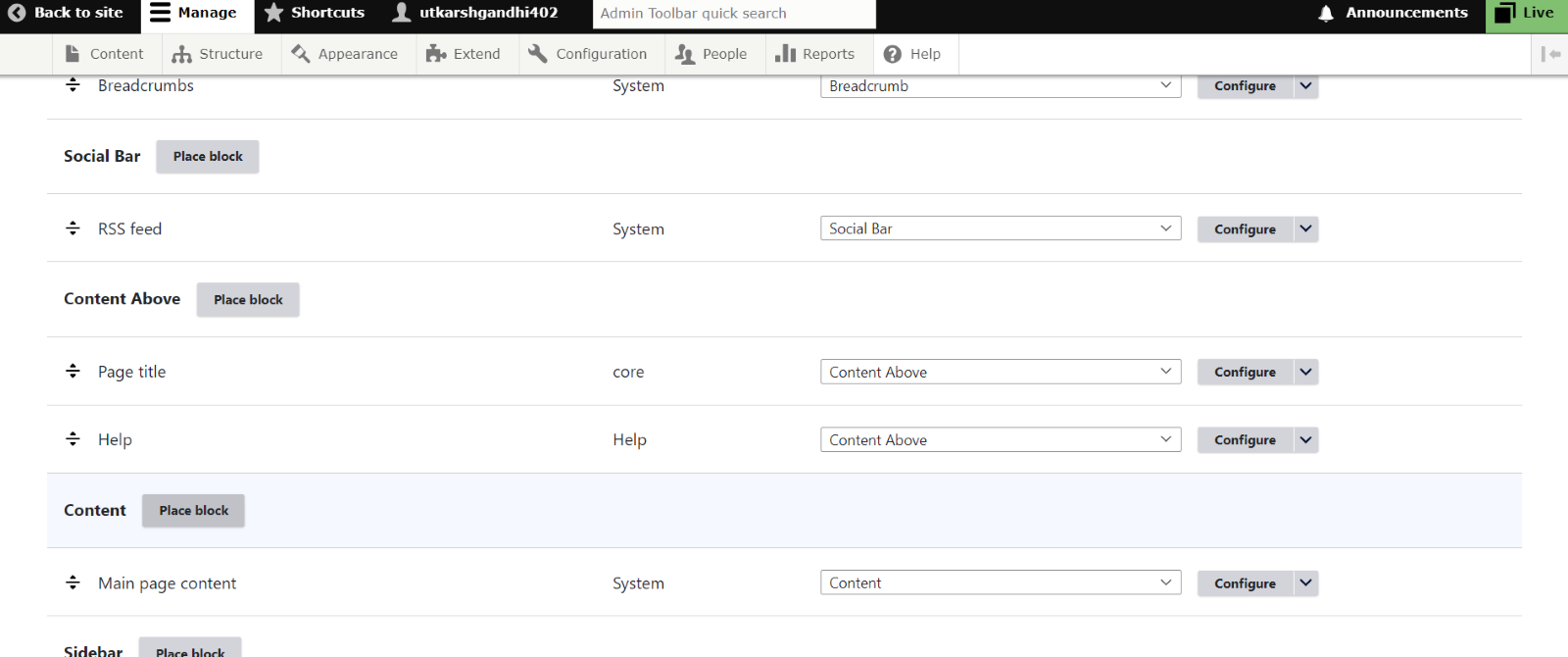
Drupal 11 Requirements: Checklist For Upgrading
Now that we know about all the Drupal 11 features, let's talk about the upgrading part. It's always wise to stay ready and grasp how the upgrade procedure works. Having an understanding of the process makes it easier to complete the process, whenever you decide to upgrade. Similar to prior major version upgrades of Drupal, there's a suggested list of areas to concentrate on to ensure your applications are upgraded as smoothly as possible. Let's have a look at this list:
1. Web Server Requirements
Drupal can run on any web server that has a PHP version that the Drupal software requires. To upgrade to Drupal 11, you would need Apache 2.4.7 or a higher version, Nginx 1.1 or higher, or any other web server that supports PHP correctly.
2. Database Requirements
By default, Drupal functions under a standard MariaDB/MySQL setup. However, a more intricate website will probably need modifications to its database settings. Given below, is a list of database versions that are supported by Drupal 11:
-
MySQL version 8.0 or above
-
MariaDB version 10.6 or above
-
Percona Server version 8.0 or above
-
PostgreSQL version 16 or above
-
SQLite version 3.45 or above
3. Memory Requirements
There are different memory requirements that you'd have to fulfil for RAM and PHP. Given below are the Drupal 11 requirements for each:
-
Memory Requirements For RAM: A minimum of 1GB is needed for the Composer to function properly. If you are operating several modules or utilizing memory-heavy programs like Solr or Memcache, a significant increase in memory may be required.
-
Memory Requirements For PHP: The minimum memory capacity that is needed is 64 MB, usually memory of 128 MB or 256 MB is found in production systems.
4. PHP Requirements
Certain individual modules might need particular PHP extensions and setup options that go beyond what's mentioned below, so, it is advised to refer to the module's guidelines as well. Given below are the PHP version and extension requirements for the Drupal 11 upgrade:
-
PHP Version: Drupal 11 needs a PHP version of 8.3 or higher
-
PHP Extensions: PDO, XML, GD-library, OpenSSL, JSON, cURL, Mbstring, and zlib
5. Disk Space Requirements
You must have at least 100 MB available. Additional space is required when you add extra modules or themes and for media files, backups, and other site files.
If you fulfil all the above-mentioned Drupal 11 requirements, then you are all set for a seamless Drupal 11 upgrade process.
So, don't wait any longer. If you are looking for seamless Drupal Migration services, then look no further and check out OpenSense Labs' Drupal Migration services now.
Drupal 11 Roadmap: The Plan Ahead
We've already discussed about the Drupal 11 features and the requirements for upgrading to the Drupal 11 version.
But that's not all.
There's more!
Yes, some exciting new Drupal 11 features are also planned in the future versions of Drupal 11, in the following weeks. New functionalities will be introduced every six months during the update process of smaller versions. Additionally, the Drupal Starshot Initiative is also a work in progress. It is aimed at creating an improved default download of Drupal 11, known as Drupal CMS.
This will encompass pre-designed top-tier solutions from the contributed project community. The main components of Drupal CMS and upcoming Drupal 11 iterations will include:
1. Automatic Updates
This Drupal 11 feature of Updates will enable you to make changes to the Drupal core via the Drupal admin interface automatically. It will update only the Drupal core at a patch level in a distinct, controlled version of your site to ensure your site remains operational until the update is fully prepared for deployment. It will also identify and notify issues at every phase of the update cycle, ensuring you're aware of them before the update goes live.
It will automatically identify pending updates to the database and assist you in managing them throughout the process.
2. Project Browser
This Drupal 11 feature will simplify the process for website creators to enhance the capabilities, appearance, and feel of Drupal. It will offer a search tool within the Drupal admin interface for locating contributed modules and themes, as well as exploring their features. After choosing an extension, guidelines will be given on installing it on your site. Everything you need will be accessible right from your website.
Also Check Out:
Drupal 11 Changes: What Has Been Removed?
Drupal employs plugins to incorporate extra Drupal 11 features into a site. These additions consist of Themes, Modules, and Installation sets. As Drupal progresses and receives new versions, its add-ons may become outdated or no longer supported. Since Drupal 9.3.0, extensions can specify a "lifecycle" status in their info file. This status indicates whether it is experimental, stable (the default), deprecated, or outdated.
Outdated add-ons are those that are presently available through Drupal but will be eliminated in an upcoming update. Multiple modules were relocated from the Drupal core to the contribution area in the Drupal 11 update to reduce the size of the Core and lessen the maintenance workload. A few have been present for a significant amount of time. You can go ahead and still install them if you're interested.
However, it's important to keep in mind that they might be eliminated in an upcoming major update. It's possible that a few of these modules could find renewed purpose in the contribution area, free from being tied to Drupal core development. So, when it comes to Drupal 11, the below-given modules have been removed:
-
Actions UI
-
Book
-
Activity Tracker
-
Forum
-
Statistics
-
Tour
Also, note that Drupal 11 has also eliminated support for IIS and urges websites using IIS to transition to a web server with official support.
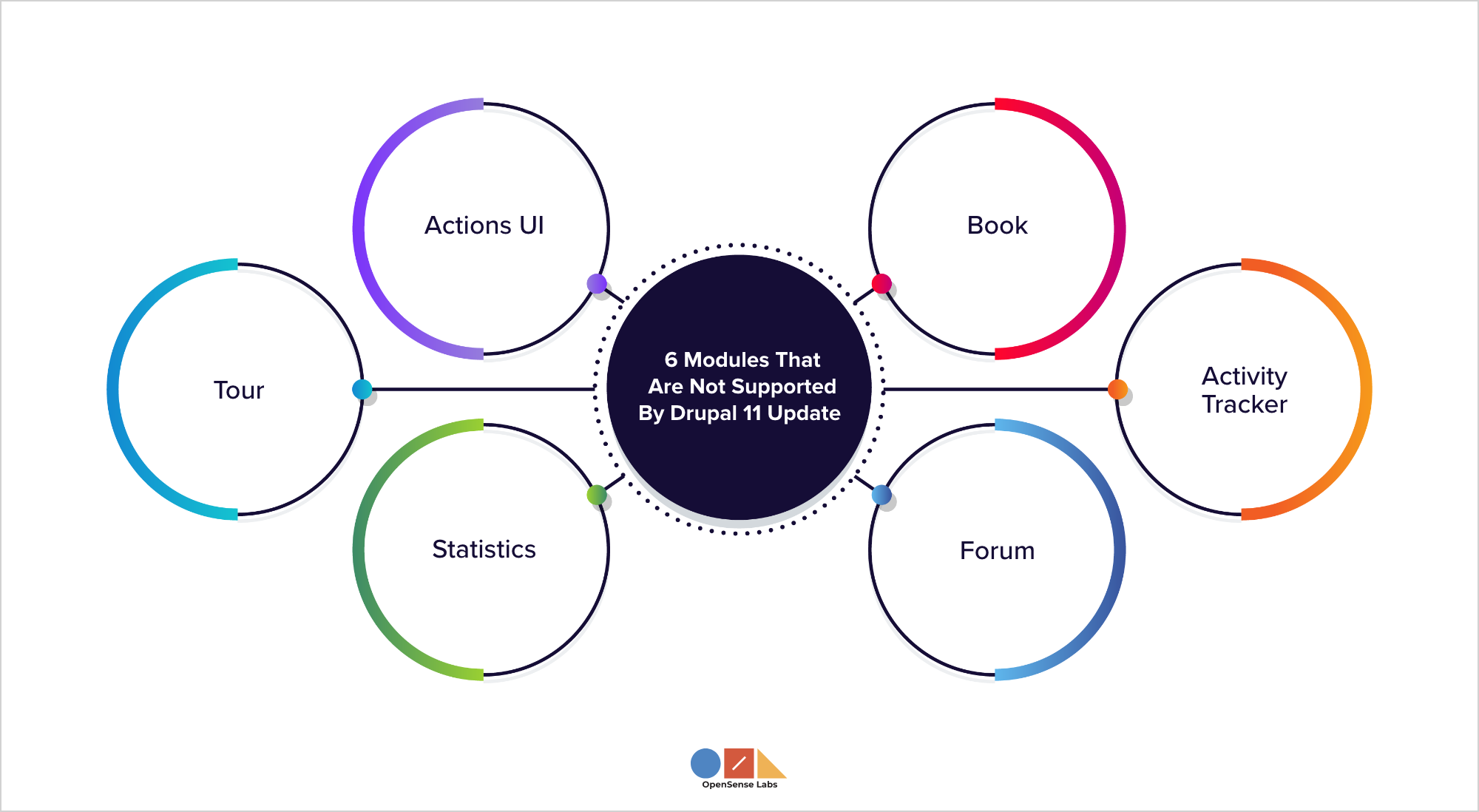
Key Takeaways
-
In November 2023, three possible Drupal 11 launch dates were disclosed, including June 2024, August 2024, and December 2024. However, Drupal 11 was launched on August 2nd, 2024.
-
With Drupal 11 now available, the latest Drupal 11 features include CKEditor Autoformat, upgraded user interface, floating bulk options, etc.
-
Like before, when upgrading to Drupal 11, there's a recommended checklist of focus areas that covers web server, database, memory, PHP, and storage space requirements.
-
There are also some upcoming enhancements scheduled for future Drupal 11 updates, in which Drupal 11 features like Automatic Updates and Project Browser will be included.
-
Several modules including Actions UI, Book, Tracker, Forum, Statistics, and Tour were moved from the Drupal core to the contribution zone to reduce the Core size and decrease the maintenance burden.
Subscribe
Related Blogs
Drupal's Role as an MCP Server: A Practical Guide for Developers

"The MCP provides a universal open standard that allows AI models to access real-world data sources securely without custom…
What’s New in Drupal CMS 2.0: A Complete Overview
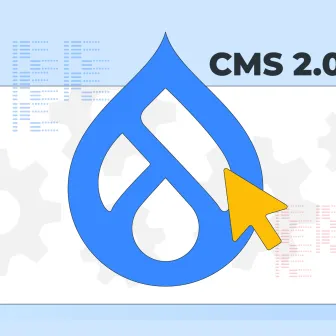
"Drupal CMS 2.0 marks a significant change in the construction of Drupal websites, integrating visual site building, AI…
Drupal AI Ecosystem Part 6: ECA Module & Its Integration with AI

Modern Drupal sites demand automation, consistency, and predictable workflows. With Drupal’s ECA module, these capabilities…




